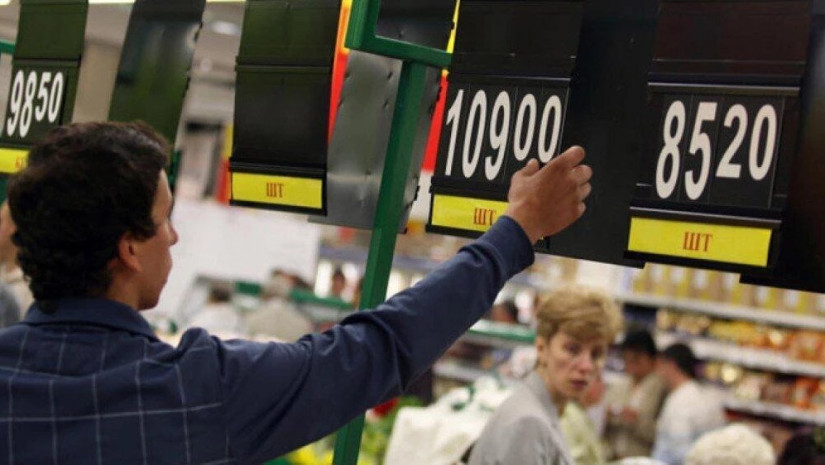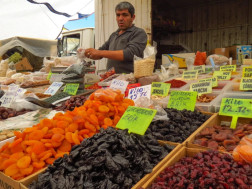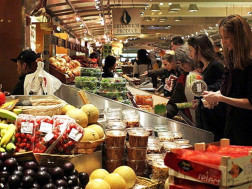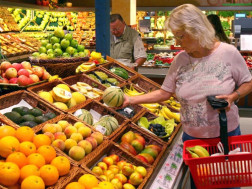Russia’s inflation in November came at 0.37% month on month, implying 11.98% year-on-year price growth, which came in slightly higher than analysts' forecasts based on weekly statistics.
“However, it may indicate that the price growth is returning to its monthly dynamics, which is more relevant to the CBR’s annual 4% inflation target,” BCS GM said in a note.
Monthly data suggest that the main contributor to November inflation was services prices, which rose 0.76% m/m. As bne IntelliNews reported, Russia’s service PMI improved in November, but still remains in the red, posting 48.3, which is still below the 50 no-change mark. Russia’s manufacturing PMI, however, posted its biggest gain in five years, at 53.2.
Food prices continue to push prices up. Fruit and vegetable prices were also among the key drivers of inflation in November. At the same time, the seasonally adjusted figure is estimated at 0.19% m/m, which is slightly higher than 0.13% m/m in October, but it also reflects that seasonally adjusted non-food and food prices remained on a downward trend, BCS GM reports.
“In the period of November 29 to December 5, inflation expectedly accelerated to 0.58% week on week; hence the annual figure increased to 12.5%,” BCS GM said. “This acceleration reflects higher electricity and gas tariffs, which increased the price of services by 5.4% w/w, while non-food prices showed ‘zero growth’ and food prices (without fruit and vegetables) remained on the deflationary path.”
Despite the increase in inflation, the Central Bank of Russia (CBR) is not expected hike rates from the current 7.5% at its next monetary policy meeting on December 16. CBR Governor Elvira Nabiullina has said that the increases in prices are being driven by sanctions and related increases in the price of things such as power that the central bank has no control over. Moreover, with the economy expected to contract this year by 2-3% and for there to be a recession in the first quarter of next year, the economic slowdown is disinflationary and so more rate hikes are unnecessary.
“While we expect some acceleration in December m/m price growth, this inflationary spike would be mostly non-monetary. The breakdown of November’s figure also implies that inflation is not a result of monetary shock – non-food and food inflation still reflects a weakness in household consumption. Thus we expect the CBR to keep the key rate at its current level of 7.5% at the policy meeting on December 16,” BCS GM said, bne reports.
















